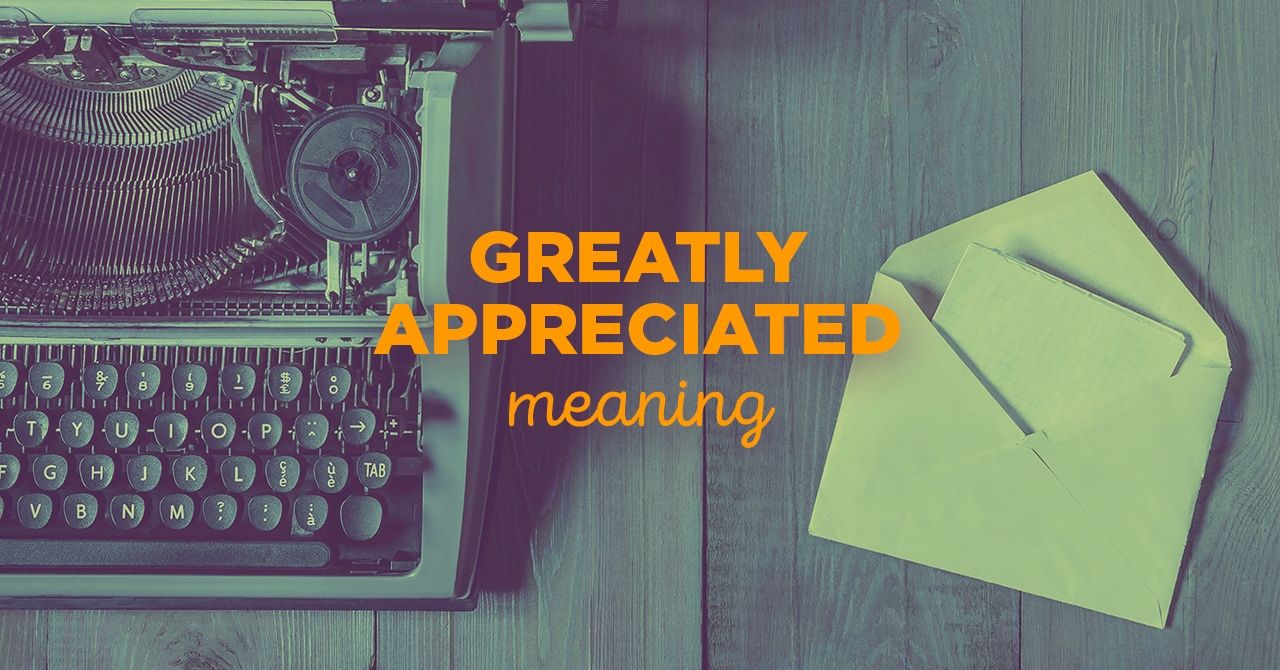
How Do You Use the Expression “Greatly Appreciated”?
You’ve probably seen the phrase “greatly/highly appreciated” in written forms of communication. It can be a tricky expression for non-native speakers to grasp as it appears not to be complete on its own.

Get a FREE guide!
Want to sound like a native English speaker?
Get our free PDF with top tips that work.

Check your email!
You’ve probably seen the phrase “greatly/highly appreciated” in written forms of communication. It can be a tricky expression for non-native speakers to grasp as it appears not to be complete on its own; it lacks some critical parts of speech that the rules of grammar tell us to make up a full sentence. In truth, it can be applied to multiple grammatical contexts and be correct in all of them.
So how do we go about understanding it — and then using it?
Formal but shorthand
As email became a more prevalent form of contact, people developed a separate lexicon and glossary of conduct within it. Just as we alter our forms of speech when intersecting with peers versus parents versus authority figures, we switch languages between an email to a colleague and a text message to a significant other.
The “greatly appreciated” meaning tends to skew formal. While you might text, “hey, I’d love it if you could pick up a gallon of milk on your way home,” in an email, you might opt for “any feedback you could give me on this press release would be greatly appreciated.”
The phrasing is more impersonal and removed. In the above circumstance, it helps the recipient to understand that you yourself won’t be heartbroken if they don’t get back to you, but that their professional opinion would make a difference to you in a professional context if they have the time.
By now, the phrase is common enough to stand independently.
Here are some more examples and variations:
“Can you proofread this for me? Would greatly appreciate it!”
“If you could do the department this favor it would be greatly appreciated.”
“Here’s the doc back with my comments.” “Thanks, greatly appreciated!”
















